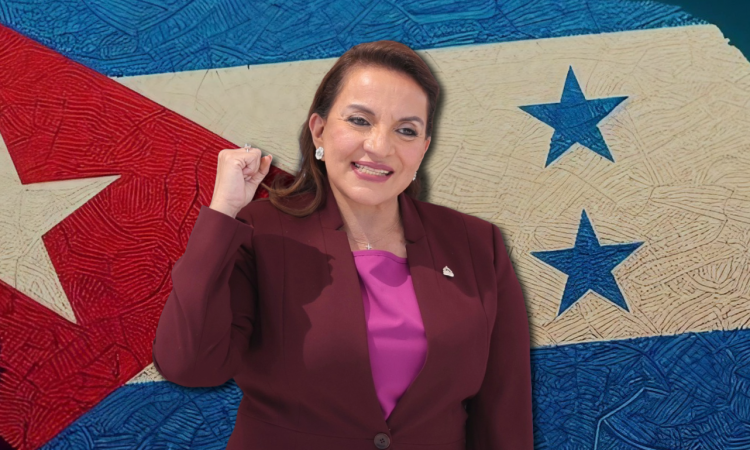Cuban exiles enjoy nostalgia for the homes and times they once knew. Those days are long gone, and they will never return.
Honduras is creeping toward the same fate: a hollowed-out nation bereft of her people, one that exists more in memory than in reality. To compound the problem, the Honduran exodus will grow exponentially if socialist policies and autocratic trends continue.
Watch on YouTube | Listen on Apple Podcasts | Watch on Bitchute
One cannot blame Hondurans for leaving. As a US expat in Honduras once wrote, “Coming to Honduras looking for work is like going to the Sahara to look for water.”
However, now is the time to reverse course—while there is still free speech and a modicum of democracy—and unite behind laissez-faire capitalism. The free-enterprise system, which rests on the rule of law and property rights, would stem the tide, untap Honduras’s immense natural resources, and open the door for investments and repatriation.
Those with the means can choose to turn a blind eye and do nothing, perhaps washing their hands of Honduras altogether. In that case, the empresarios (and cronies) will lose the manpower and capital to grow their businesses and the economy; the specter of Cuba-style neofeudalism and an abandoned country will become a reality.
That is the goal of Honduras’s 21st-century socialists who hold power, and the departure of Honduras’s toughest and most energetic young men is hastening the downward spiral.
Cuba’s Recipe for Ambitious Socialists
Most Cubans today live as slaves or prisoners. That includes those peddled abroad as purported aid or medical workers. Anyone promoting democracy and threatening the dictatorship is liable to be imprisoned or eliminated, as was Oswaldo Payá 12 years ago.
The so-called middle class in Cuba tend to live off remittances. They dream of escaping to gringo capitalism or perhaps joining the ranks of the ruling clique.
That might sound familiar, since remittances accounted for 26.8 percent of Honduran GDP in 2022, and this proportion has been rising sharply. These exiles work hard, take risks, and endure isolation to provide for their families.
Unfortunately, the Cuban model has allowed the island’s pernicious ruling class to remain in power for generations and live like kings. Although concealing his luxurious lifestyle until his death in 2016, Fidel Castro amassed a fortune of nearly US$1 billion.
The dictatorship he founded has outlived him and almost all the original revolutionaries, some of whom had good intentions. Castro wanted to spread his ideological seed across the Americas, and to some degree he succeeded. His successors have taught their knack for regime continuity to the likes of Nicaragua and Venezuela.
Albeit not via a guerrilla-led overthrow, the current Honduran administration is nipping at Cuba’s heels. The Libre party does not hide its reverence toward autocrats and eagerness to emulate the Fidelista dictatorship. Cuban socialism rests on lies and breeds misery, but it portends endless reign to power-hungry politicos and offers idealistic dreams to useful idiots.
The Authentic Honduras Abroad?
Author José Azel notes that “Cuba has experienced a gradual loss of its identity as its parts were replaced.… What made ‘Cuba’ Cuba has changed and not for the better.… The Cuba we knew has, in fact, ceased to exist.… The authentic Cuba is the one Cubans have built in South Florida.”
Cuban-Americans have forged a proud legacy in the United States, but the pain of losing their homeland remains. Actor Andy García left Havana in 1960, and he explains that his success stems from “the opportunity to pursue [his] dreams and speak [his] voice.”
Socialist power grabs in Honduras—such as the unlawful appointment of the congressional president and restricted access to US dollars—are undermining the rule of law, suffocating opportunity, and driving people away. Anti-investment policies include the withdrawal from the International Centre for Settlement of Investment Disputes, switched allegiance from Taiwan to the Chinese Communist Party, and the end of ZEDE special development regions.
The exodus includes the best and brightest, who seek personal security and better prospects for their families. Unless this reverses soon, the Honduran diaspora will parallel the Cuban-American experience. Prominent Hondurans—such as journalist Dunia Elvir, chocolatier Maribel Lieberman, and medical researcher María Elena Bottazzi—are bringing the best of Honduras to First-World nations. New Orleans, in particular, has become a focal point for catracho culture, from the baile punta to baleadas. Hondurans lead Louisiana’s Hispanic Chamber of Commerce, reflecting a long-term presence.
Unifying the Opposition for a Purpose
The Honduran opposition can still win democratically. The door has not closed on a peaceful path away from Cuba 2.0.
However, to prevail against a determined and learned political force, the opposition needs (1) a united coalition and (2) a compelling agenda. The alternative to 21st-century socialism must be free enterprise. This can lay the foundation for foreign investment, economic development, and a renaissance for Honduran pride.
 Join us in our mission to foster positive relations between the United States and Latin America through independent journalism.
Join us in our mission to foster positive relations between the United States and Latin America through independent journalism.
As we improve our quality and deepen our coverage, we wish to make the Impunity Observer financially sustainable and reader-oriented. In return, we ask that you show your support in the form of subscriptions.
Non-subscribers can read up to six articles per month. Subscribe here.

